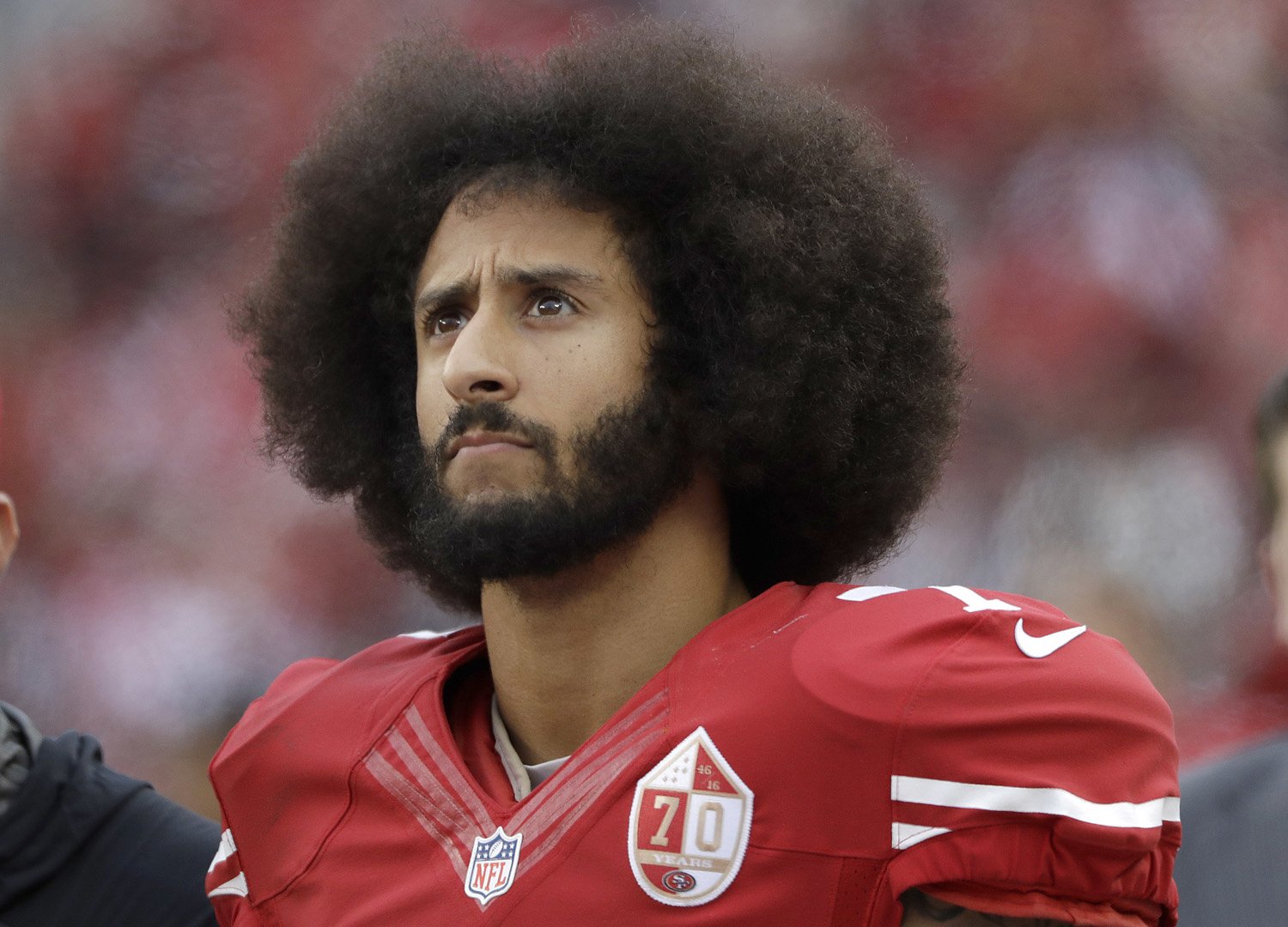GQ has just released its “Men of the Year” edition, and in addition to featuring side-lined QB Colin Kaepernick on the magazine’s cover, it celebrates him as 2017’s “Citizen of the Year”. My first response was, “Really? With all that is going on in our country; that was the best the magazine could come up with? You’ve got to be kidding me!”
We have service people and law enforcement officials putting themselves in harm’s way on a daily basis. Why not them? And what about the hundreds of everyday heroes like Dr. Stephen Kimmel, who canoed through the floodwaters of Hurricane Harvey to perform emergency surgery, or the legions of volunteers who made up the “Cajun Navy”, rescuing people across Louisiana during multiple storms and floods? They surely helped more people than Colin Kaepernick , right?
And then I stopped and thought about it – both GQ’s choice, and my own initial reaction to it – and realized that actually, GQ was probably more in the right than I was. But… not because I was suddenly convinced that taking a knee during the national anthem is something with which I am entirely comfortable. Truthfully, I am not. But that’s the whole point.
GQ awarded Kaepernick the title “Citizen of the Year”, not “public servant of the year” or “volunteer of the year” or even “patriot of the year” — as important, and deserving of recognition as those are. But, when you stop to think about citizen of the year, awarding the distinction to Kaepernick makes some real sense.
Here is a guy with real concerns about race and justice in the United States of America. Maybe he is right, and maybe he is wrong, but he chose to express those concerns in a reasoned, non-violent, and even non-angry way. He spoke his mind without lashing out, and as hurtful to some as it might have been when he took a knee, he certainly never “dishonored the flag” or challenged the fundamental decency of the nation or its people. That strikes me, especially in the often rage-filled shout fest that passes for contemporary public discourse around tough issues – to be a model of good citizenship.
Kaepernick’s actions also created serious and ongoing conversation about what it means to be a citizen, what constitutes loyalty to one’s country, the complex balancing of personal rights and collective obligations which lies at the very heart of our constitutional democracy, and so much more. These topics are the lifeblood of that democracy, when they are examined calmly and hopefully, as has been the case with most of those who actually followed Kaepernick’s practice, and those who have not.
And for those of us who disagree with Kaepernick’s analysis of the situation and/or with anyone choosing to kneel during the national anthem, considering the wisdom of GQ’s choice is a powerful reminder that one of our greatest strengths as a nation is our commitment to not conflating good citizenship with any one way of understanding our nation. Such conflation is the hallmark of dictatorships on both the right and the left, and the opposite of American culture at its best.
To be totally clear, I have no idea if GQ was motivated by my approach to the conclusion they reached in bestowing the title of citizen of the year on Colin Kaepernick. I fact, I could easily see it as nothing more than their attempt to build credibility and market share with those who might celebrate the decision, and as a result, read and/or subscribe to GQ as a result. Bur frankly, I don’t care. Even if that were the case, how often do good things come out of less than the most noble of motivations? I don’t know the answer to that question as it applies to your life, but I know how it applies to my own life, and in the history of this country, especially around issues of race and justice.
We fought a civil war which freed slaves, but not because we in the North had reached a broad national consensus that slavery was a moral evil over which it was worth going to war. How many more generations would have suffered had we waited for that noble motivation? And rolling forward a century, does anyone think that the Civil Rights Act was signed into law simply because President Johnson was losing sleep about the unfair, and unequal treatment of black citizens in America?
So feel free to be as cynical as you want about how GQ came to make its choice of citizen of the year, and even regarding Kaepernick’s thinking and actions, but whatever you think, both he and the magazine deserve some real credit for reminding us about what counts as good citizenship and the importance of all us engaging in these issues, whether we do so kneeling or standing on two feet.

